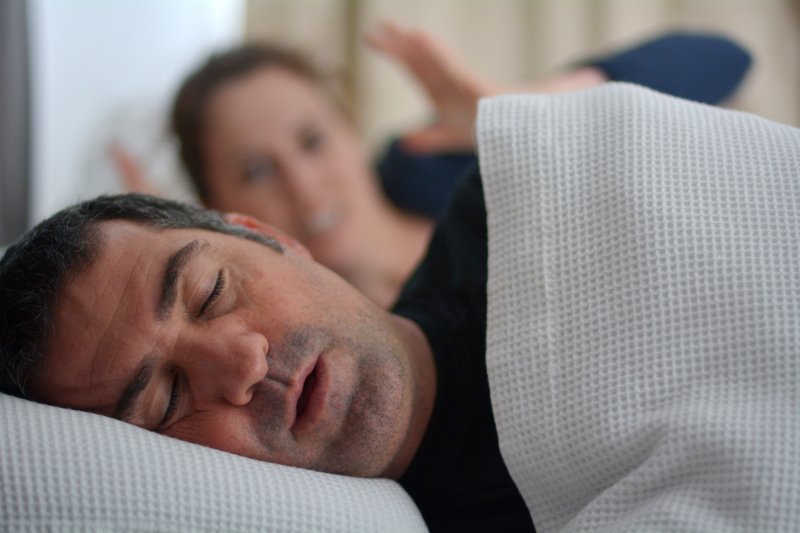Debunking 5 of the Most Common Sleep Apnea Myths
November 18, 2021

Obstructive sleep apnea (OSA) is a common sleep disorder that affects millions of Americans. It causes people to experience frequent pauses in their breathing that last ten seconds or more, preventing the brain from receiving oxygen. Well, did you know that the majority of all those affected are undiagnosed? It could be because there are several misconceptions about the disorder that keep people from seeking treatment. Because of that, we’ve decided to put some of those inaccuracies to rest. Read on as we debunk five common sleep apnea myths.
Sleep Apnea Is Just Snoring
Loud snoring is certainly one of the hallmark symptoms of sleep apnea, but it doesn’t necessarily mean you have the disorder. Snoring is caused by the vibrations of soft tissues and the airway, indicating that air is having trouble moving in and out of the lungs. That means it’s entirely possible to be a snorer and not have sleep apnea. However, it’s critical to keep an eye out for other warning signs of the disorder, such as:
- Daytime drowsiness
- Frequent waking throughout the night, possibly gasping or choking
- Falling asleep frequently when tired or bored
- Chronic daytime fatigue after 7-9 hours of sleep
It Only Affects Men
Even though men are more likely to be diagnosed with sleep apnea, women are still equally capable of suffering from it as well. In fact, most women are affected by sleep apnea after menopause, with about 6% of them having the condition. Since women often experience different symptoms than men, the condition is more likely to go undiagnosed.
Sleep Apnea Is No Big Deal
If you’re constantly not getting a good night’s sleep, it can take a significant toll on your mind and body. Failing to seek treatment can increase your risk of job-related injuries, car accidents, heart attacks, and stroke. That’s why it’s critical to watch out for symptoms and get medical attention as soon as you can.
It Can Go Away on Its Own
False! Sleep apnea is a life-threatening condition that will not resolve on its own. Choosing not to seek treatment can increase your chances of developing heart problems and complications down the line. These issues include high blood pressure (hypertension), heart disease, stroke, and cancer.
Alcohol Helps You Sleep
Do you like to have a glass of wine before bed? Plenty of adults with a sleep disorder do. They claim it helps them sleep easier and better at night. However, studies show that alcohol is actually detrimental to sleep. Even though it acts as a depressant and can make you drowsy, it also inhibits REM sleep, the most important stage of sleep. Since alcohol also relaxes the muscles in the back of your throat, it makes it easier for the airway to become blocked, leading to more apneic events.
Now that we’ve debunked some common sleep apnea myths, you can be more vigilant about your overall health. If you think you may suffer from the disorder, ask your doctor about treatment. Don’t wait until it’s too late!
About the Practice
Dr. Laura Philipps is passionate about helping her patients achieve their happiest, healthiest, smiles. Since graduating, she has received state-of-the-art training in several advanced specialties, including sleep-disordered breathing. If you would like to seek treatment for sleep apnea, don’t hesitate to contact Dr. Philipps and her team. Visit our website or call (432) 570-4433 to make an appointment.
No Comments
No comments yet.
RSS feed for comments on this post.
Sorry, the comment form is closed at this time.
